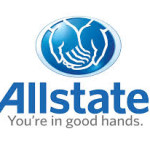The Baltimore Sun reports today that Maryland Insurance Commissioner Ralph S. Tyler ordered nine premium finance companies – companies that finance the Maryland Automobile Insurance Fund premiums, which consumers are still required to pay in full – to stop charging ridiculously high finance charges. Two of these finance companies also must refund money to consumers because, incredibly, they charged interest in policies never issued. The Baltimore Sun article suggests this will save MAIF’s customers about $100 a year.
These finance companies exist because of a quirk in the law that requires MAIF to make customers pay in full for their premiums. Since most consumers cannot afford this, these drivers turn to predatory lending companies. Everyone from MAIF itself to Ralph Tyler has argued that MAIF should allow its insured drivers to pay premiums over time, like virtually all the rest of us.
Unfortunately, MAIF drivers, who typically have poor driving records and/or terrible credit histories, have no lobbyists in Annapolis. MAIF’s competitors (particularly, as this blog discusses, State Auto) and these finance companies have lobbyists, which is why this nonsense was allowed to continue. Hopefully, 2009 is the year that the Maryland legislature finally gets its act together and gets rid of this nonsense.

 Maryland Injury Law Center
Maryland Injury Law Center



